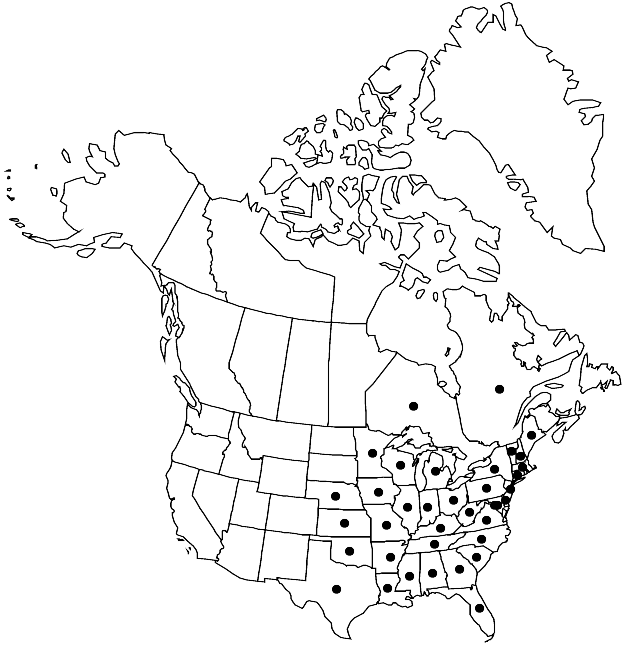Difference between revisions of "Cardamine concatenata"
Repert. Spec. Nov. Regni Veg. 46: 188. 1939.
FNA>Volume Importer |
FNA>Volume Importer |
||
| Line 7: | Line 7: | ||
|year=1939 | |year=1939 | ||
}} | }} | ||
| − | |basionyms={{Treatment/ID/ | + | |basionyms={{Treatment/ID/Basionym |
|name=Dentaria concatenata | |name=Dentaria concatenata | ||
|authority=Michaux | |authority=Michaux | ||
| + | |publication_title=Fl. Bor.-Amer. | ||
| + | |publication_place=2: 30. 1803 | ||
}} | }} | ||
|synonyms={{Treatment/ID/Synonym | |synonyms={{Treatment/ID/Synonym | ||
| Line 73: | Line 75: | ||
|publication year=1939 | |publication year=1939 | ||
|special status= | |special status= | ||
| − | |source xml=https://jpend@bitbucket.org/aafc-mbb/fna-data-curation.git/src/ | + | |source xml=https://jpend@bitbucket.org/aafc-mbb/fna-data-curation.git/src/f6b125a955440c0872999024f038d74684f65921/coarse_grained_fna_xml/V7/V7_718.xml |
|tribe=Brassicaceae tribe Cardamineae | |tribe=Brassicaceae tribe Cardamineae | ||
|genus=Cardamine | |genus=Cardamine | ||
Revision as of 20:23, 24 September 2019
Perennials; usually sparsely pubescent, sometimes glabrous. Rhizomes (tuberiform, fragile), moniliform, segments fusiform, 2–10(–20) mm diam. (fleshy). Stems erect, unbranched, (1–)2–4(–5.5) dm, glabrous or pubescent distally. Rhizomal leaves 3-foliolate, (7–)10–20(–30) cm, leaflets sessile; petiole (4–)7–18(–25) cm; lateral leaflets similar to terminal, blade sometimes smaller; terminal leaflet blade oblong, lanceolate, oblanceolate, or linear, 2.5–6 cm, base cuneate, margins coarsely dentate to incised, laciniate, or 3-lobed (lobes usually toothed to incised, rarely entire, surfaces puberulent or not, trichomes 0.2–0.3 mm). Cauline leaves (2 or) 3, 3-foliolate (usually whorled or opposite, rarely alternate, similar in morphology to rhizomal leaves), petiolate, leaflets petiolulate or subsessile; petiole (1–)1.5–6(–7.5) cm, base not auriculate; lateral leaflets sessile, blade similar to terminal, sometimes smaller; terminal leaflet subsessile or petiolulate (to 3 cm), blade lanceolate, linear, or oblanceolate, (3–)4–10(–12) cm × (3–)5–20(–25) mm, margins usually coarsely dentate to incised, rarely subentire (margins minutely puberulent). Racemes ebracteate. Fruiting pedicels ascending to divaricate, (6–)10–27(–33) mm. Flowers: sepals oblong, (4–)5–8 × 2–4 mm, lateral pair slightly saccate basally; petals white to pale pink, oblanceolate, (8–)10–20 × (3–)4–7(–9) mm, (short-clawed, apex rounded); filaments: median pairs 8–12 mm, lateral pair 6–8 mm; anthers oblong-linear, 1.5–2.5 mm. Fruits linear-lanceolate, (2–)2.5–3.8(–4.8) cm × 1.5–3 mm; (valves glabrous or sparsely pubescent); ovules 10–14 per ovary; style (2–)5–9(–12) mm. Seeds brown, oblong, 1.6–3 × 1.8–2 mm. 2n = 128–256.
Phenology: Flowering Feb–May.
Habitat: Wooded bottoms and bluffs, rich woods, limestone cliffs and outcrops, rocky banks, mesic forests, moist areas with leaf litter, floodplain woods
Elevation: 0-1000 m
Distribution

Ont., Que., Ala., Ark., Conn., Del., D.C., Fla., Ga., Ill., Ind., Iowa, Kans., Ky., La., Maine, Md., Mass., Mich., Minn., Miss., Mo., Nebr., N.H., N.J., N.Y., N.C., Ohio, Okla., Pa., S.C., Tenn., Tex., Vt., Va., W.Va., Wis.
Discussion
Selected References
None.